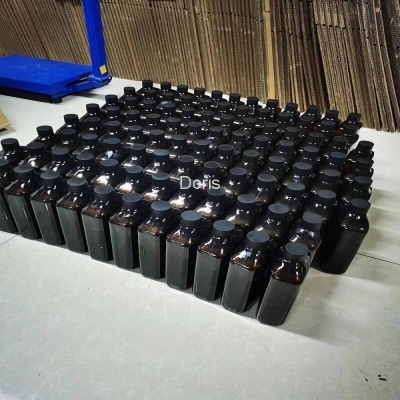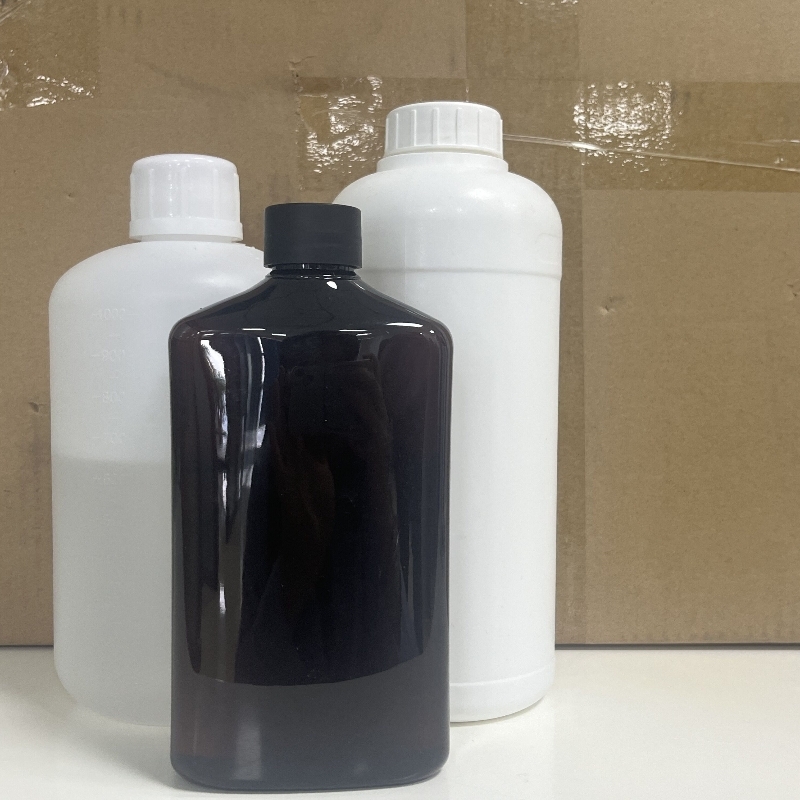The new Chinese patent medicine naming rules do not involve Yunnan Baiyao and other time-honored brands with traditional culture
-
Last Update: 2017-03-27
-
Source: Internet
-
Author: User
Search more information of high quality chemicals, good prices and reliable suppliers, visit
www.echemi.com
Source: xinhuanet.com on March 27, 2017, the head of the pharmaceutical registration department of the State Food and Drug Administration said on the new rules for the naming of Chinese patent medicines that the rules do not involve the names of drugs bearing traditional Chinese medicine culture, such as Yunnan Baiyao, Tongrentang and other drugs from classical ancient prescriptions are not included in the list Prior to that, CFDA solicited opinions from the public on the guiding principles for the naming of generic names of Chinese patent medicines (Draft for comments), which caused heated discussions from all walks of life According to the opinion draft, the nomenclature of Chinese patent medicine should not be exaggerated, boastful and unrealistic, such as "treasure", "spirit", "essence", "strength", "quick effect", etc., and the praise words of "imperial system", "secret system", etc The head said that the new rules are mainly aimed at the newly approved drugs in the future Meanwhile, they should also adjust the names of Chinese medicines which are exaggerated, imply curative effect and unscientific The person in charge pointed out that drug name, as a part of drug standards, is one of the important contents of drug supervision, which must be standardized and strictly managed, and enterprises should ensure that their drugs can not mislead consumers Drug name can not express or imply the curative effect, which is the basic requirement of drug name It is understood that in the next step, the CFDA will give a certain transition period to the products that need to be renamed according to the relevant regulations During the transition period, it will allow the old names to be used in parentheses, so that patients and doctors can gradually adapt This guiding principle is formulated to strengthen the registration management, further standardize the naming of Chinese patent medicine, reflect the characteristics of traditional Chinese medicine, respect culture and inherit tradition This guiding principle is based on the technical requirements and principles of traditional Chinese medicine generic name naming, according to the current situation of Chinese patent medicine naming, combined with the recent research progress of Chinese patent medicine naming This guideline is not only applicable to the naming of new Chinese medicine, but also applicable to the non-standard naming of the original Chinese patent medicine For drug names that have been used for a long time, if they must be changed, their former names can be listed as a transition The transition time shall be in accordance with the relevant provisions of the drug regulatory department under the State Council 2、 The general name of Chinese patent medicine should be scientific, clear, brief, not easy to cause ambiguity and misleading, and avoid using obscure words Generally, the number of words shall not exceed 8 2 Feudal superstition or vulgar and indecent terms should not be used 3 The dosage form shall be specified in the name and placed at the end of the name 4 In addition to the dosage form, the name should not be the same as the existing generic name of Chinese patent medicine, so as to avoid the generation of different names of the same name and the same side (2) "Necessary and reasonable" principle 1 Generally, names of people, place names and enterprises are not used, nor are they named by code For example, "x0x" and other words are included in the name 2 It is not allowed to use homophony of nouns with inherent specific meaning Such as: homophony of celebrity names 3 Generally, the name of endangered protected animals and plants should not be included (3) The principle of "avoid suggestion and exaggeration of curative effect" 1 Avoid the use of drug names related to pharmacology, anatomy, physiology, pathology or therapeutics that may give hints to patients For example, the name contains the words "reducing blood sugar, reducing blood pressure, reducing blood fat, eliminating inflammation and cancer" 2 Exaggerated, boastful and unrealistic terms shall not be used For example: "treasure", "spirit", "essence", "strength", "quick effect", etc.; the name contains "imperial system", "secret system", etc (4) The principle of "embodying the characteristics of traditional culture" is one of the cultural characteristics of traditional Chinese medicine Therefore, the naming of traditional Chinese medicine can refer to the advantages of ancient Chinese medicine fully combined with the aesthetic concept, so that the name of traditional Chinese medicine can not only be scientific and standardized, but also reflect certain traditional Chinese culture However, the words with cultural characteristics used in the name should have a clear literature basis or recognized cultural origin, and avoid suggesting or exaggerating the efficacy 3、 In general, we should use Chinese herbal medicine, Chinese herbal pieces, Chinese effective ingredients, Chinese effective parts and dosage forms For example: huaruishi powder, Danshen oral liquid, Morinda oligosaccharide capsule, etc 2 It can be named by the combination of effective ingredients, effective parts and functions of traditional Chinese medicine 3 The name of the artificial finished products of traditional Chinese medicine should be different from that of natural products Generally, it should not be named as "artificial XX" 4、 The following methods can be used to name the compound preparation of Chinese patent medicine according to the different situation of the composition of the prescription 1 Use the abbreviation of the name of the main medicinal materials of the prescription and name them in combination with the dosage form, but the abbreviation cannot be combined into the meaning that violates other naming requirements For example, Xianglian pill is composed of two kinds of medicinal materials, i.e Muxiang and Coptis; Guifu Dihuang pill is composed of eight kinds of medicinal materials, i.e cinnamon, aconite, rehmannia, yam, Cornus officinalis, Poria cocos, cortex moutan and Alisma; Gegen Qinlian tablet is composed of four kinds of medicinal materials, i.e pueraria, Scutellaria, Coptis and liquorice 2 The main functional dosage forms can be used for naming In the naming of this type, it can be directly named by function, such as Buzhong Yiqi mixture, jietan Zhisou pill, buxindan, Dingzhi pill, etc.; it can also use metaphor, pun, metonymy, antithesis and other rhetorical techniques to express the efficacy of the prescription, such as Jiaotai Pill, yunujian, Yuehua pill, YUPINGFENGSAN, etc Examples are as follows: (1) using figurative rhetoric to name, that is, according to the similarities of things, using specific, simple, familiar things to explain abstract, profound, unfamiliar things Such as: YUPINGFENGSAN, yuehuawan, etc Yupingfeng San: the word "screen" is used to protect the skin and resist external evil (wind) In the name of "Yupingfeng", the screen refers to the body's barrier against the outside world, which vividly explains the special function of this prescription in treating superficial deficiency and self perspiration, and has a strong traditional cultural flavor, reflecting the characteristics of image thinking of traditional Chinese medicine Yuehua pill: "Yuehua" The ancients referred to the moon or the halo around it This prescription can nourish yin and moisten lung, and treat tuberculosis As the lung belongs to Yin, it is the canopy of five Zang, just like the brilliance and beauty of the moon, so it is called "moon pill" (2) The use of pun rhetorical nomenclature, that is, in a certain language environment, the use of polysemy or homonymy of the word conditions, intended to make the sentence has dual meaning, words here and intended to that Such as: Didang soup, etc Didang decoction is composed of four kinds of Medicine: leech, Tabanus, peach kernel and rhubarb It can be used to reduce abdominal pain, urinate for self-interest, turn yellow as jaundice, go insane and so on It has the function of attacking and chasing blood "Dudang" may be another name of leech, but it is more of "tongdang", which means that this side has the power to clean up and attack blood stasis, and has a good effect on the blood storage of Xiajiao (3) Use metonymy to name, that is, to borrow one thing to replace another, such as changing pill Dressing pill is composed of cinnabar and aloe Take wine and pill and take it with yellow wine It has the function of purging fire and defecating It is used to treat the symptoms of dryness of stomach and intestines, dysentery, irritability and restlessness of sleep "Changing clothes" is an ancient euphemism for defecation and defecation The name of changing clothes means that after taking medicine, the stool can be unobstructed in a short period of time and the symptoms disappear Changing clothes instead of going to the toilet is elegant and clear (4) Dual rhetoric is a kind of rhetoric that uses two phrases or sentences with the same structure, equal number of words and symmetrical meaning to express opposite, similar or related meanings Such as: xiexingdaochisan, etc Xiexingdaochisan, functional diarrhea heart and spleen heat accumulation, clinical commonly used in the treatment of heart and spleen heat of the mouth and tongue sore "Xiexin" and "Daochi" belong to the "positive dual" in the dual, that is to say, the meanings expressed before and after are the same or similar, complementary to each other 3 The drug taste number and dosage form were used for naming Such as: Siwu soup, etc Siwu Decoction, composed of angelica, Ligusticum chuanxiong, Paeonia alba and radix rehmanniae, is the representative prescription of blood tonic 4 The dosage (dosage, proportion of dosage in the formula, single dose) and dosage form were used for naming Such as: Qilishan, liuyisan, etc Qilisan has the effect of dispersing blood stasis and swelling, calming pain and hemostasis It has a very good effect on bruise, swelling and pain of blood stasis or bleeding from knife injury Our side is easy to be damaged by excessive service, not suitable for a large number of long-term service Generally, we only take "seven Li" each time, that is, we name it after the amount of each time Liuyi powder is composed of talcum powder and licorice The dosage ratio of the two drugs is 6:1, so it is named 5 It is named after drug color and dosage form Most of the prescriptions named by color have certain characteristics because of the color of the finished products, which leave a deep impression on people Therefore, they are named according to this, which is convenient for promotion and application, such as: Peach Blossom soup, etc Peach blossom soup is composed of one jin of red tallow, one jin of dried ginger and one jin of Japonica rice Because red tallow is red and white, it is also known as peach blossom stone After decoction, it is light red and bright as peach blossom, so it is called peach blossom soup 6 Named after taking time and dosage form Such as: Jiming powder, etc Jiming powder, the so-called "Jiming", refers to the time when the chicken is singing, this prescription must be taken in the morning when the stomach is empty with the best effect, so it is called "Jiming powder" 7 It can be named by monarch medicine or main medicine name and function combined with dosage form For example: Longdan Xiegan pill, Danggui Buxue Decoction, etc Longdan Xiegan pill has the effect of purging the liver and gall, strengthening the fire, removing the heat and dampness of the lower Jiao Gentian herb, the monarch of the prescription, has the effect of purgative liver and gall and real fire Danggui Buxue Decoction has the effect of Invigorating Qi and generating blood Angelica, the main medicine in the prescription, is beneficial to blood and camp 8 It can be named by the combination of drug taste number and main drug names or drug taste number and function or usage For example: Wuling powder, Sansheng drink, etc Wuling powder contains five kinds of drugs, including Polyporus, Alisma orientalis, Atractylodes macrocephala, Poria cocos and Guizhi It also contains two "cocos", hence its name Sanshengyin, in which Radix Aconiti, Magnolia officinalis and liquorice root are all raw, does not need to be processed Liquorice root is commonly used for raw, but Radix Aconiti is often processed and used as medicine, which is different from other prescriptions It emphasizes the raw use of various medicines, which is its characteristic 9 It can be named by combination of prescription source and efficacy or drug name For example: refers to the MI Fuling pill and so on The term refers to Fuling pill, which comes from "Quansheng Zhimi recipe" There are 119 search results of Fuling pill in the database of Chinese prescriptions, with "Zhimi" intended to distinguish from the source of prescriptions 10 It can be named by the combination of the active part (TCM term) and the main drugs or functions For example: Wendan Decoction, Yangyin Qingfei pill, Qingre xiepi powder, Qingwei powder, Tongqiao Huoxue Decoction, Shaofu Zhuyu Decoction, Huazhi Rougan capsule, etc 11 It can be named by combination of main medicinal materials and drug guides and adding dosage forms Such as: Chuanxiong tea powder, tea to adjust the service, hence the name 12 Pediatric medicine can be added with the clinical name of the medicine, such as xiaoerxiaoshi tablet, etc 13 The usage of the medicine can be added to the name, such as Xiaoer fuumbilical Zhixie powder, Hanhua Shangqing tablet, Zijin ingot for external use, salvianolic acid for injection, etc 14 In accordance with the principle of naming, naming can reflect the five elements of yin and Yang, ancient academic thoughts (such as Taoism, Legalists, etc.), the names of ancient objects, etc., so as to highlight the characteristics of traditional Chinese culture, such as Zuojin Pill, Yuquan Pill, etc Zuojin Pill has the function of clearing and purging the liver fire, reducing adverse reactions and stopping vomiting The heart belongs to fire, the liver belongs to wood, the lung belongs to gold The liver is located on the right and the Qi flows on the left If the liver gets lung gold, the biochemistry is normal Qingxinhuo makes liver on the left with lung gold, so it's named
This article is an English version of an article which is originally in the Chinese language on echemi.com and is provided for information purposes only.
This website makes no representation or warranty of any kind, either expressed or implied, as to the accuracy, completeness ownership or reliability of
the article or any translations thereof. If you have any concerns or complaints relating to the article, please send an email, providing a detailed
description of the concern or complaint, to
service@echemi.com. A staff member will contact you within 5 working days. Once verified, infringing content
will be removed immediately.







